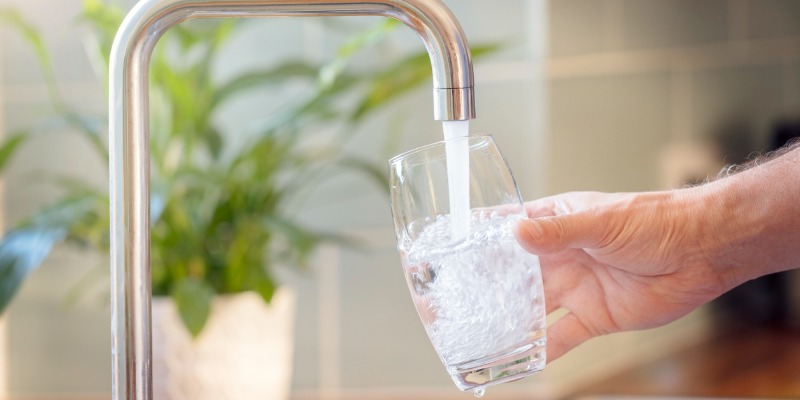
A water softener is a device to help you deal with the issues caused by hard water. Whether you need one depends on the kind of water you have. If you’ve ever wondered how a water softener works, you’re in luck! We break it down below.
How a Water Softener Works, Step-By-Step
A water softener works by removing the calcium and magnesium ions from your water and replacing them with sodium ions. The unit softens all of the water for your house, but not water used for irrigation (the sodium can cause issues for plants).
It contains several cubic feet of porous plastic resin that is coated with molecules that attract the ions dissolved in the water. The resin collects the calcium and magnesium and releases the sodium. Every few days it rinses the resin with salt water. You will need to add a bag of salt to the softener every so often. If you are on a low sodium diet or otherwise concerned about sodium in your drinking water, you can use potassium instead. However, potassium salt is quite a bit more expensive.
Are you looking to speak with an HVAC expert? Contact the team at D&B ClimateCare today!
How to Check if a Water Softener is Working
Except for adding salt, water softeners only need periodic maintenance. However, if your water softener stops working, how do you know?
There are a few things to check. First of all, is your water still soft? The easiest way to check this is with soap. Soft water creates more film and lather than hard water. Then you should check to make sure that the water softener has power, is clean with no debris, and that the salt tank is in fact filled. One thing which can happen is a crust of salt forms over the tank. It looks full, but is actually nearly empty.
You can also test the output water for hardness and excess salt. If the water is not as soft as desired, you may need to add additional salt to the tank.
Do You Need a Water Softener?
You need a water softener if the following two things are true: You have hard water, and the hard water is bothering you. Hard water does not cause health problems, and some people prefer the taste. However, it can leave residue on your dishes, reduce the life of equipment, clog pipes, and lower the efficiency of electric water heaters. It can also change the taste of your coffee and have a negative effect on your hair and skin. You may need to use more soap, resulting in soap film on your tub and sink.
It’s ultimately up to you whether you feel your hard water warrants a water softener. However, if you do feel that you need one, D&B ClimateCare can help.
Contact Us Today
We sell Water Softeners that use ion exchange technology to clean and soften your water and help you avoid the issues that can come with hard water. Contact us today!






